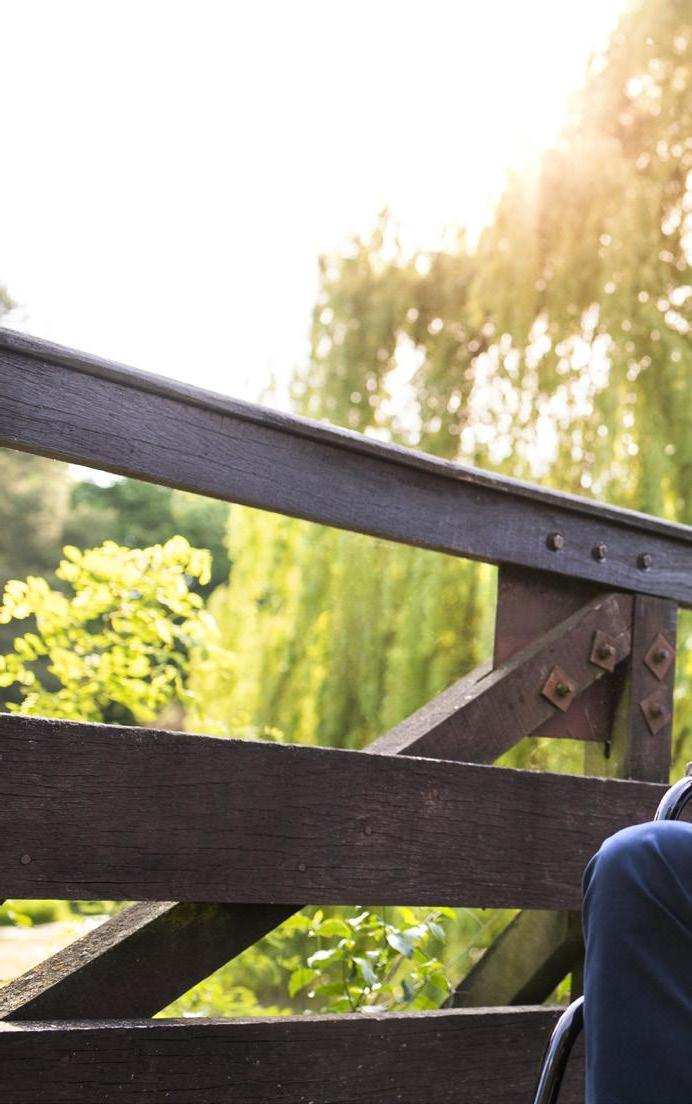
3 minute read
The Unexpected Journey of a Caregiver
The Unexpected Journey of A Caregiver
BY ELIZABETH MARASCO
In 2012, John Stewart and his family experienced drastic changes when their mother passed away. Then six months later, their father experienced a catastrophic stroke. John explained, “It was such a severe stroke, it only happens to less than 1% of the population. It takes out all of their cognitive abilities, including their balance, and can render them to a 2-year-old.”
John and his two brothers were thrust into the roles of caregivers and providing 24-hour care for their dad. For the next 7 ½ years, the three brothers coordinated schedules and rearranged plans as needed to ensure their dad had full-time proper home care. To make this possible, the entire family had to work together, adapt their lifestyles, learn new skills, and gather strength for what they were facing.
The medical field was nothing new to John; he has over 30 years of experience working in health care as a nurse and administrator. His credentials read like a badge of honor highlighting education and experience in the medical field: RN, BSN, MSA, Service Line Administrator Emergency, Trauma, Bariatrics, Oncology, Stroke, and EMS at Hurley Medical Center.
When you meet John, it is evident that he is passionate about helping patients receive the best medical care, especially during a moment of crisis. But nothing could have entirely prepared John for the role of a caregiver for a family member. John explained, “When you flip the switch to your family, I think there are elements you can bring across to help during this time frame.
But it is a whole different world.” John shared how the role of a caregiver for a family member is unique to the experience of working in health care because of the emotional connection. John said, “When it comes to you, and you’re holding the bag, all bets are off as it relates to an academic standpoint or formal health care standpoint. Your parents are your parents, and they depend on you.” Caregivers often live with extraordinaire stress they easily overlook because they submerge themselves into looking out for their loved one’s well-being and needs. Although this may be with the best intentions, it can also lead to caregivers feeling exhausted and depleted. John explained, “It is hard to recognize when you need an outlet.
One of the aspects we learned was balance. Yes, it may be easy to say, but it is a challenge to do.” It is essential to understand the reality of the journey and not fall into a martyr mindset to try to take the role on by yourself. There are various emotions caregivers may experience—sadness, fear, anger, exhaustion, shock, guilt, frustration, and loneliness, to name a few. John wants caregivers to know, “It’s OK to feel how you are feeling; one week you might nail it, and the next week you might feel a void. You need to be OK with feeling how you do, when you do, and discover ways to make changes as needed.” It is crucial to be transparent and have an honest look at what is happening with the person in need of care and the caregiver’s overall well-being. John gave a reminder that when you neglect your own self-care, “it can start chiseling into your well-being.” Here are some suggestions John shared to help caregivers avoid feeling burned out and overwhelmed: • Connect with local resources for support like Valley Area Agency on Aging. • Network with other caregivers and support groups; connect with people that are in the same boat. • Find someone to confide in to help get a fresh perspective. • Be realistic about the details and requirements of taking on the role of a caregiver. • Build strength to help you endure the journey. • Being a caregiver can be exhausting; it is vital to find balance and self-care to avoid burnout.











